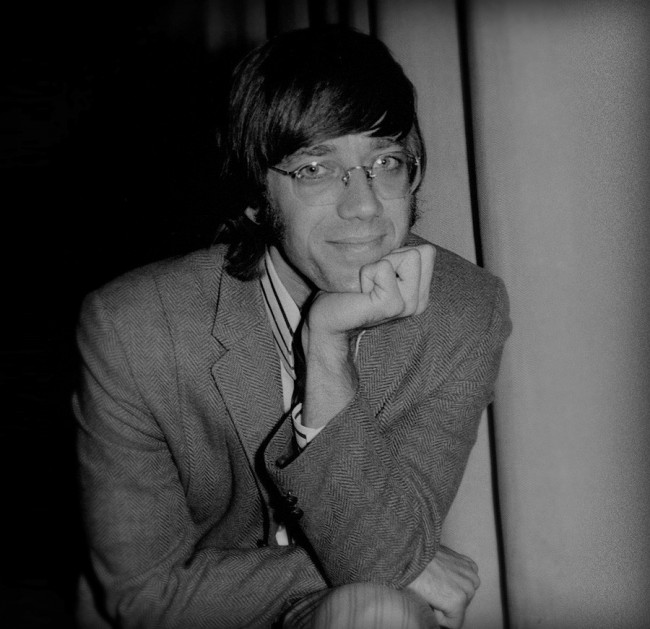RIP Ray Manzarek (1939-2013)

By Wallace Wylie
Within the fires of adolescence all great/dubious rock and roll mythologies are forged. In moments of loneliness, music makes some unlikely connections and lives change as a result. So it goes with me. As a lonely 15-year-old I had read about The Doors but never actually heard them. For some reason my mum had bought some musical encyclopedia that had entries on every major, and most minor, bands and performers up through the late 80s. I read every entry. Twice. Three times. Untold amounts of times. The writing wasn’t exactly stellar, but it filled a need. Some entries I read more than others. The entry on The Doors was one of them.
I began to imagine what the music would sound like based on the descriptions. Soon enough movie trailers began appearing on TV advertising The Doors movie. To my young mind the clips seemed wild, the snippets of music scintillating. With money saved from my paper round, I bought a cassette of the first Doors album and rushed home. I retired to my room and slapped on some headphones. When ‘The Crystal Ship’ came on my hair stood on end and my whole body seemed like it was about to float away. “This must be what drugs feel like,” I thought to myself. I was giddy. I was gone.
The Doors are easily the most hated ‘classic rock’ group, yet they remain one of my favourite bands. They left behind a flawed but extraordinary back catalogue whose marriage of garage rock, experimentalism, performance art, and pop has no comparison in music history. They sound like nobody on earth. A large part of that uniqueness came from Ray Manzarek, the bands’ keyboardist who died on May 20th 2013. Ray Manzarek, as a human being, sounded unbearable. He peddled the “Jim was a shaman” garbage to anyone who would listen. He all but credited himself and The Doors with inventing the 60s. When Doors drummer John Densmore refused to allow a Doors song to used in a Cadillac commercial, Manzarek sued Densmore and attempted to paint him as a communist and an eco-terrorist. His ego knew no bounds. Yet his musical legacy with The Doors is untouchable.
From the churning intro of ‘Break On Through (To The Other Side)’ to the rock n roll piano of ‘Roadhouse Blues’ he seemed to possess an instinctive knowledge of what was right for each song. His musical ego knew when to take a back seat and when to surge to the front. The lightness of his touch on ‘Love Street’ makes the song skip along like a daydream. He took the riff from soul standard ‘Tramp’ and turned it into ominous funk on ‘The Changeling’.
Some bands from my youth have fallen by the wayside, but not The Doors. I always return to them and each return pays back my youthful devotion. With such a connection, the news of Manzarek’s death stunned me. From somewhere deep inside a great sadness heaved. Suddenly every story I’d ever read of his monstrous ego seemed unimportant. For a few days, forgive the man his foibles and let his musical contributions be the focus. Despite what some would have you believe, there are many intelligent Doors fans who ignore the ‘shaman’ nonsense, who do not worship at the altar of the Lizard King, who enjoy a chuckle at the groups eccentricities and pretensions, but still recognise something remarkable and vital in their music.
For those fans, and for my 15-year-old self who experienced genuine awe upon hearing the music of Ray Manzarek and The Doors, I write this tribute. RIP Ray Manzarek.























